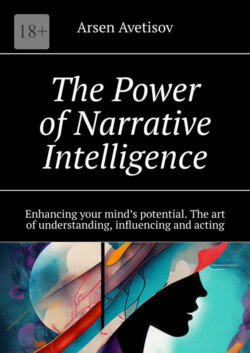Читать книгу The Power of Narrative Intelligence. Enhancing your mind’s potential. The art of understanding, influencing and acting - Арсен Аветисов - Страница 7
EQ: Who Controls Emotions, Controls the World
Why is emotional intelligence so important for business?
ОглавлениеJust as the mode of the rational mind is words, the mode
of the emotions is nonverbal. ― Daniel Goleman
A famous businessman once joked that we use emotional intelligence when, if it is impossible to sell, there is at least an opportunity to seduce. But seriously, the peculiarity of this intelligence lies in the very definition of emotion.
Emotion is a mental process that shows our subjective evaluation of the present or possible situation. The key word in this definition is 'subjective’. Many of us sometimes confuse the concepts of feeling and emotion. Feeling is a combination of thought and emotion, and even something more than their wordless compound.
The use of emotions to actively influence the environment, in its essence, is an irrational influence. But, on the other hand, it is efficient, clear, and does not require developing complex algorithms, in-depth analysis, or calculations. Often a single glance conveys more information than a few hundred words or a string of numbers.
The fact is that working with the rational part of consciousness, conclusions, along with clarity and logic, has, accordingly, a downside. Such processes, due to their linearity and consistency, are extremely slow. The quality of results of such intellectual work depends on many factors, both innate and acquired, including vocabulary, education, and upbringing. Therefore, thought can be compared to the strategy of a certain general staff, and emotion can be compared to tactics directly on the front line.
We are convinced: in order to manage something, it is necessary to control something. Control is understanding of what is happening and what needs to be done to make something different happen. We strive to control everything we can imagine and measure. But the fact is that such a rational approach to controlling the irrational, in this case emotions, has its own peculiarities.
The task of emotional intelligence is not to indulge in control, in the usual sense of this process, but to focus on understanding the experience. In order to be aware of emotions, they must initially be felt, experienced, but this does not imply following them. We need to follow our goals and needs, which often diverge from the direction that our emotions show us. Either we control our emotions, or they control us.
Using emotional intelligence allows you to purposefully influence and draw attention to what it is necessary for. The amount of information that enters the brain through all channels in one second is approximately 11 million bits. Mental activity processes only about 50 bits. Because there is so much incoming information, we focus on the main things, and many reactions or decisions are executed in the background of the brain. In turn, the brain itself, in order to create a representative image for us, gets rid of more incoming data and uses data that is already available and exists in it. And in this competition of priorities, only emotions indicate to us what is really worth paying attention to, which contributes to the consolidation of incoming information in memory.
We believe that emotions focus our attention on things or events that are our priority. But emotions are just as likely to focus attention on the priorities that are presented to us by our surroundings. Through emotions, bypassing rational consciousness, we have access to more ancient brain structures. This allows us to control our behaviour by paying attention to how desires emerge. And this gives an opportunity to influence the behaviour of a person as a consumer. Who owns the attention, owns the market. Who owns the market, owns the world. Through attention, we can control the world. Attention is capitalised.
The use of emotional impact in economics explains the well-known mantra: ‘If you take enough of nothing, you will get something in the end.’ Emotions are the tangible ‘nothing’ that can be turned into a real ‘something’.
